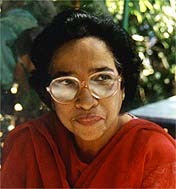
Motoring along the Romantic Highway in Germany between the Maine River and the Alps, one drives through picturesque villages, churches of Baroque and Rococo splendour, convents, cloisters and luscious fruit orchards. Nuremberg the ancient city of Imperial Diets was my destination. This city was made notorious by Hitler’s National Socialist Party. Once upon a time, the dreaded swastika adorned not only important buildings but was subconsciously embossed on every German heart.
Nuremberg is steeped in history. But my interest took me to the house of Albrecht Durer the most famous inhabitant of Nuremberg, who lived at 39, Albrecht Street from 1509 to 1528. He was a famous painter and engraver, and the house is preserved as it was during his time.
A young woman dressed in a long billowing skirt and a housewife’s bonnet, with a key ring dangling from her waist, greeted visitors at the door. She was a German actress impersonating Agnes, the wife of Albrecht Durer. She blended into the background, weaving her way through many rooms, and smiling and nodding at visitors.
It was the voice of Agnes which made the audio tour interesting. She related the story of the Durer household, of her husband’s work, of his friends, her daily chores, and her bland relationship with her illustrious spouse. Somewhere through the commentary one discovers a pang of loneliness in that voice, and is touched by the candour in which she confessed that she could come into her own only after Albrecht’s death.
Albrecht Durer had a very charismatic personality. He exuded an irresistible animal charm. His curly shoulder length locks, his blue penetrating eyes, his friendly demeanour made him a very popular figure in the society of that day. But he was vain as he was clever, and was the first man to paint a frontal picture of himself, highlighting his uncanny resemblance to the picture of Jesus.
Durer belonged to an artisan family. His friends were artisans, sculptors and painters, who used his workshop on the ground floor during the day, and congregated upstairs in the dining room at night for a pint of beer, a meal and discussions on politics. These were interspersed with loud guffaws and bawdy jokes. One can visualize Agnes as she went about her job of cooking in that dark and dingy kitchen, to fill the belly of Albrecht’s boisterous friends.
Agnes was the daughter of a rich copper merchant. The marriage was an arranged affair which took place in July 1494. But soon after the wedding, Albrecht took off on his travels, leaving his new wife behind. The job of being mistress of such a Bohemian establishment must have been daunting to the young girl. Throughout their life together Albrecht never expressed any tenderness or affection for his wife. In spite of being an artist,he was unromantic, and just could not comprehend her emotional needs. He referred to her as his house mate, who helped in the sale of his paintings and sculptures.
This attitude must have given his cronies a wrong impression. Though they didn’t openly criticize her in his presence, they considered her a mate unworthy of such a great man, an “incorrigible shrew and skinflint.” She was supposed to be a thorn in his side, who brought about his premature death by forcing him to overwork for money, right into his old age.
Agnes had the exacting job of packing and sending his works for sale all over Europe, some in boxes and some in barrels. Some of those barrels have been preserved, and are on display on the ground floor of the house. Agnes maintained her quiet dignity, while toiling for what was best for her husband and his business. This kept him in good humour, and left him free to pursue his artistry. Ironically, her hard work and patience turned her into a shrewd business woman.
After Albrecht’s death on 6th April 1528, Agnes was very generous to his brothers and their families. Agnes was now a rich woman.
Researchers eventually identified the source of Agnes’ vilification. It was a crotchety old man called Willibald Perkheimer, a life long friend of Albrecht, who coveted a pair of antlers that hung in the Durer’s home. Agnes refused to part with it, and he retaliated by comparing her to the notorious wife of Socrates.
But the residents of Nuremberg still laud Agnes Durer for discharging her duties and privileges admirably, and safeguarding the priceless assets of her incomparable artist husband, even in the face of criticism from his friends.
